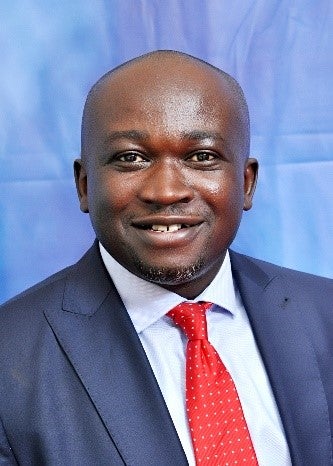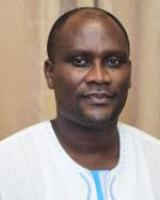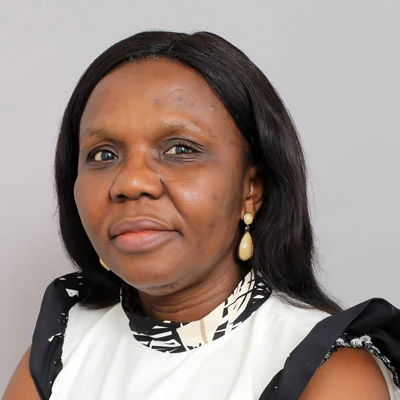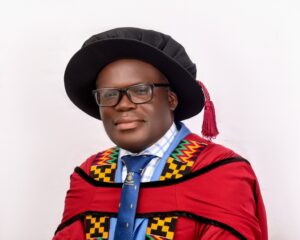
The University of Ghana (UG) was founded as the University College of the Gold Coast by Ordinance on August 11, 1948 for the purpose of providing and promoting university education, learning and research. The vision of the university is to become a world class research-intensive university with the mission of creating an enabling environment that makes University of Ghana increasingly relevant to national and global development through cutting-edge research as well as high quality teaching and learning.
UG is administered through a central administration which includes a collegiate system comprising the following colleges and a School of Graduate Studies:
- College of Basic and Applied Sciences
- College of Education
- College of Health Sciences
- College of Humanities
The University has several research institutions and centres for learning and research, within the colleges. Those that involved in health-related research include:
College of Basic and Applied Sciences
- West African Centre for Cell Biology of Infectious Pathogens (WACCBIP)
- Institute for Environment and Sanitation Studies
- Biotechnology Research Centre
- Center for Climate Change and Sustainability Studies(C3SS)
College of Health Sciences
- Noguchi Memorial Institute for Medical Research
- Centre for Tropical, Clinical Pharmacology & Therapeutics
- West African Genetic Medicine Centre (WAGMC)
College of Humanities
- Regional Institute for Population Studies
- Institute for Statistical, Social and Economic Research
- Centre for Urban Management Studies
- Centre for Ageing Studies
Additionally, to promote, coordinate, and facilitate research activities within the university, the Office of Research, Innovation and Development (ORID) was established in 2010. ORID provides research administration and grant management services to researchers. It has the specific responsibility of developing and implementing the University’s research policy, ensuring effective distribution and efficient use of research funds and representing the interests of the University in contractual relationships, grant applications and reporting administering contract research.
Site Director
 Professor Gordon Awandare, Professor/Director, West African Center for Cell Biology of Infectious Pathogens (WACCBIP)
Professor Gordon Awandare, Professor/Director, West African Center for Cell Biology of Infectious Pathogens (WACCBIP)
+233 54 371 7697
gawandare@ug.edu.gh; gawandare@hotmail.com
Prof. Awandare is the Director of West African Center for Cell Biology of Infectious Pathogens (WACCBIP ). His research focuses on the pathogenesis of Plasmodium falciparum malaria in children. There are two main branches of investigations, namely the role of the host immune response on one hand, and the mechanisms used by the parasite to propagate itself and cause disease. From the perspective of the host, we have been investigating the production of inflammatory mediators and the relationship between genetic variation in innate immune response genes and susceptibility to severe malaria in children. Our research on the Plasmodium parasite is aimed at gaining a better understanding of the mechanisms used for invasion of red blood cells. Therefore, a substantial aspect of our research efforts focus on characterizing the sialic acid-independent pathways of invasion and identifying novel receptors and ligands involved.
Site Mentors
 Dr. Yaw Asare Afrane, Associate Professor
Dr. Yaw Asare Afrane, Associate Professor
+233 (0) 54 228 6113
yafrane@ug.edu.gh
Yaw Asare Afrane is trained in malaria vector and parasite biology and epidemiology with over 15 years of research experience in vector borne diseases. The focus of his research is on the ecology of malaria vectors and the Plasmodium parasite they transmit. He is currently studying how insecticide resistance affects the fitness of African malaria vectors and their vectorial capacity. Further, he is studying the interaction between resistant malaria vectors and anti-malaria drug tolerant malaria parasites to understand the potential for parasites to evolve drug tolerance by studying genetic variation. His studies are funded through an NIH/NIAD RO1 (R01AI123074). He has authored 45 peer-reviewed publications.
Professor Koram Kwadwo Ansah, Professor of Epidemiology
kkoram@noguchi.ug.edu.gh
Professor Ansah’s work in rural and deprived communities in Ghana at the beginning of his medical career exposed him early to the challenges of mounting an effective public health response to the high burden of infectious diseases if one is to make a significant contribution to the improvement of health in the country. His broad training in epidemiology and public health with practical hands-on training at the MRC Labs in The Gambia allowed him to develop skills in all aspects of large-scale epidemiologic research, including field organization, data management, and analysis, especially as it relates to vector-borne diseases. Since returning home after my doctorate, Professor Ansah has worked at the Noguchi Memorial Institute for Medical Research (NMIMR) as an infectious disease epidemiologist and, most recently, as the Director NMIMR.
 Dr. Lidya Mosi, Senior Lecturer, Microbiology and Molecular Biology, University of Ghana
Dr. Lidya Mosi, Senior Lecturer, Microbiology and Molecular Biology, University of Ghana
lmosi@ug.edu.gh
Dr. Mosi’s primary research focus is Buruli ulcer, a necrotizing skin disease caused by Mycobacterium ulcerans. Her lab utilizes multidisciplinary approaches: in silico genomics; functional laboratory studies to investigate gaps in transmission to identify the niche of M. ulcerans and other mycobacteria in the natural environment; and the development of rapid diagnostic and intervention strategies for Buruli ulcer disease. Additionally, she works on characterization of secondary microbial infections in Buruli ulcer lesions and the determination of antimicrobial resistance in microbes from patient and environmental samples. She has extensive experience in both lab and field work.
 Dr. Osbourne Quaye, Associate Professor
Dr. Osbourne Quaye, Associate Professor
+233 (0) 303 933 223;
oquaye@ug.edu.gh
Dr. Osbourne Quaye is the Head of the Virology Laboratory of the West African Centre for Cell Biology of Infectious Pathogens (WACCBIP) and very much interested in all viruses as pathogens. His research group currently works on gastrointestinal viruses including rotaviruses, noroviruses and adenoviruses to understand the influence of sanitation and zoonotic transmission on disease burden, virus diversity, and vaccine efficacy. The group also works on HIV latency and drug discovery, host genetic polymorphisms in hepatitis B, C and D infections, and the surveillance of filoviruses in bats, Epstein Barr and yellow fever viruses. Dr. Quaye is a Senior Lecturer at the Department of Biochemistry, Cell and Molecular Biology and the Head of Monitoring and Evaluation at WACCBIP, University of Ghana, Legon. He has an M.Phil. degree from the University of Ghana, Legon and a Ph.D. from the Georgia State University, Atlanta, GA. His research carrier as a Molecular Virologist started at the Centers for Disease Control and Prevention (CDC), Atlanta, GA as a Microbiologist in Molecular Virology.
 Dr. Elvis K Tiburu, Associate Professor of Biophysics
Dr. Elvis K Tiburu, Associate Professor of Biophysics
+233 (0) 55 958 5194
Tiburue@gmail.com; etiburu@ug.edu.gh
Dr. Elvis K. Tiburu is an Associate Professor of Biophysics, and his research is focused on developing biological interphase materials for drug delivery to cancer tumors. His laboratory is also engaged in developing sensing devices for various biomedical applications, including cancer detection. Over the years he has developed expertise in bioinstrumentation, cell signaling, and biomaterials synthesis with specific training in material synthesis, bioinformatics, big data and sensor development. Dr. Tiburu obtained his PhD from Miami University specializing in Biophysics in 2004. He then went to Beth Israel Deaconess Medical Center, Harvard Institutes of Medicine in Boston, USA to pursue postdoctoral training in Professor Jerry Goopman’s Laboratory. After three years at Beth Israel Deaconess Medical Center, he joined the Center for Drug Discovery, Northeastern University as an Assistant Research Professor. His responsibility at the time was to investigate the structure of G-protein coupled receptors and identify key binding sites for drug discovery purposes to treat drug abuse patients. He was a Visiting Scholar in 2012 to the Department of Biomedical Engineering, sponsored by the Carnegie Corporation of New York. During his stint as Visiting Scholar, he helped developed Graduate programs in the School of Engineering Sciences.
 Professor Dorothy Yeboah-Manu, Professor and Head of Department in Bacteriology
Professor Dorothy Yeboah-Manu, Professor and Head of Department in Bacteriology
dyeboah-manu@noguchi.ug.edu.gh
Dr. Yeboah-Manu has worked in mycobacterial disease research for the past twenty-one years. The Department of Bacteriology at Noguchi Memorial Institute for Medical Research, where she is based, acts as the national reference laboratory for tuberculosis and Buruliulcer. The department works to improve the quality of care for both diseases in addition to several bacterial diseases in Ghana. Dr. Yeboah-Manu’s work in TB sought to establish the burden of Mycobacterium africanum (Maf) as a causative agent of TB in Ghana, determine epidemiological associations including potential risk factors for infection, the transmission dynamics of TB and analyze for genomic diversity and drug resistance prevalence as well as target mutation between M. tuberculosis and Maf. The goals of her research in BU have been to improve laboratory diagnosis and therapy by analyzing causes of recurrence or treatment failure as well as understanding the ecology of M. ulcerans (Mu) as the mode of transmission has not yet been elucidated.

Dr. Ayaga Agula Bawah, Associate Professor of Population Studies & Director of the Regional Institute for Population Studies
aabawah@ug.edu.gh
Ayaga Agula Bawah, is Associate Professor of Population Studies, and Director, Regional Institute for Population Studies, University of Ghana, and a Research Affiliate of the Population Studies Center (PSC), University of Pennsylvania. Professor Bawah has expertise is in population and health research in Africa, particularly in research methodology, longitudinal data analysis and modeling of demographic processes, evaluation of health interventions including maternal and child health, fertility, reproductive health, including family planning programmes, etc. Prior to joining the University of Ghana, he was Assistant Professor at the Mailman School of Public Health, Columbia University, New York. He is a member of Ghana’s Food and Drugs Authority’s Technical Advisory Committee on Clinical Trials (TAC-CT), a member of the International Union for the Scientific Study of Population (IUSSP), Union for African Population Studies (UAPS), and the Population Association of America. He is an internationally acclaimed researcher and academic. He holds Bachelor of Arts degree in Geography and Resource Development with Classical History and Civilization, double Master of Art degree in Population Studies and Demography, from University of Ghana and the University of Pennsylvania, respectively, and a PhD in Demography from the University of Pennsylvania. He has published widely in several top-tier peer-reviewed journals and contributed several books chapters in the fields of population and health.

Professor Samuel Nii Ardey Codjoe, Professor of Population Studies at the Regional Institute for Population Studies & Provost of the College of Education
scodjoe@ug.edu.gh
Samuel Nii Ardey Codjoe is a Professor of Population Studies at the Regional institute for Population Studies (RIPS), and the Provost of the College of Education, University of Ghana (UG). He obtained his BA (Hons) degree in Geography and Resource Development in 1992 at the University of Ghana, MPhil in Human Geography in 1998 at the University of Oslo, Norway, and PhD in Geography (Major) and Soil Science (Minor) in 2004 at the University of Bonn, Germany.
Prof Codjoe joined the Regional Institute for Population Studies as a Lecturer in 2004, after working as a Senior Research Officer at the Population Impact Project from 1999-2004. He was promoted to Senior Lecturer in 2008, became Director of RIPS in 2012, was promoted to Associate Professor in 2011 and Full Professor in 2015. In 2011, he was Principal Investigator of the Climate Change Adaptation Research and Training Capacity for Development (CC@CD) Project under the auspices of the IDRC’s African Adaptation Research Centres of Excellence Programme. Prof Codjoe has won several major competitive grants, securing more than 37 million USD in funding for research, equipment, and fellowships for a number of graduate students and postdoctoral fellows.
Prof Codjoe’s research focuses on the population and environment nexus and impacts of climate change on infectious diseases. He has over 90 research publications in some of the leading international journals on population, environment and health.
Prof Codjoe’s contributions to science has been to understand the climate change-diseases (cerebrospinal meningitis; schistosomiasis; malaria; and diarrheal) nexus from the point of view of community members through public perception studies. In addition, he has contributed to the impacts of extreme weather conditions (floods, high temperatures and humidity) to health service delivery and health infrastructure. He has received several awards including the University of Ghana’s Faculty of Social Sciences’ best researcher in 2011 and recognition by the Makerere University for exemplary leadership in hosting the 8th African Population Conference in Entebbe, Uganda in 2019.

Professor Eric Sampane-Donkor, Professor of Bacteriology and Global Health & Chair of the Department of Medical Microbiology
esampane-donkor@ug.edu.gh
Eric Sampane-Donkor is a Professor of Bacteriology and Global Health, and the current Chair of the Department of Medical Microbiology, University of Ghana Medical School. His current research interests focus on understanding the dynamics of infectious pathogens in at-risk populations, such as patients with stroke, sickle cell disease and diabetes. He has authored >120 peer-reviewed articles and data from some these papers have been useful in designing interventions to manage and prevent various types of infections among at-risk populations. His work on the pneumococcus contributed to the introduction of the Pneumococcal Conjugate Vaccine in Ghana in 2012, and also earned him the African Prize of the Robert Austrian Award in Pneumococcal Vaccinology. Currently, he is the PI of a 5-year NIH grant (RO1 AI169674-01) to unravel the impact of vaccination on the population biology of the pneumococcus with regard to children with sickle cell disease in Ghana.
